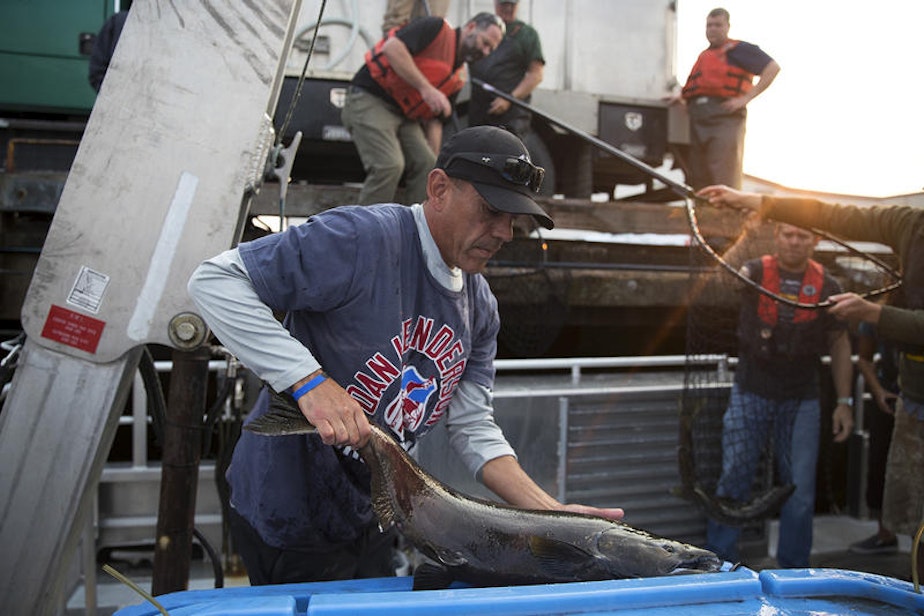Crews near Bellingham load up live salmon to feed sick, young orca

An extraordinary effort to feed a sick, young orca got underway Friday morning in the waters west of Bellingham.
Crews loaded 24 live chinook salmon into tanks aboard King County's Research Vessel SoundGuardian as well as the Lummi Nation police boat at Squalicum Harbor.
They hoped to find the ailing young orca known as J50 to feed her the salmon. Attempts to locate the J-pod were unsuccessful on Friday and the whales were later spotted in Canadian waters. The crews administered a test run of the salmon delivery instead. Researchers say the female, who is three-and-a-half years old, is starving and sick.
A Canadian team administered a dose of antibiotics to the whale on Thursday after they found her swimming with other members of the J-pod off San Juan Island.
Another whale in that pod has been carrying her dead calf for more than two weeks, a mourning display that scientists say is unprecedented.
This is part of a bigger issue, says Lummi Tribal Chairman Jay Julius. "The whales are obviously in desperate need of fish and the chinook runs are depleted," he said. Jon Carroll, a documentary filmmaker with Children of the Setting Sun Productions, filmed Friday's operation.
Sponsored
"Inherently, I think there is value in finding ways to understand the indigenous perspective on indigenous issues that often get bogged down by science and don’t have heart," Jon said.
"They’re willing to assert their rights - not just because of the bureaucracy that they have to assert through, but because they have a specific value that they’re trying to protect," said Jon. "It’s a sacred duty." Every individual in the J-pod is important to the group's survival. There are only 75 of these whales left.
They're falling victim to pollution, noise and lack of Chinook salmon, the only food they eat.
“We’re the people of the Salish Sea, we’re the people of the water, we’re the salmon people," said Lummi Tribal Chairman Jay Julius. “We’ve hunted, we’ve fished with the orcas, in this pod, in this family, for thousands of years."
"They’ve been a part of this Salish Sea, like us. They’re critical to this entire eco-system."
Sponsored
"You see the herring depletion, you see the salmon depletion, you see the orca depletion, before that, you saw the Lummi Nation depletion."
"Through federal policy, boarding schools, only two individuals speak our language, in an attempt to remove our culture, who we are," Julius said.


